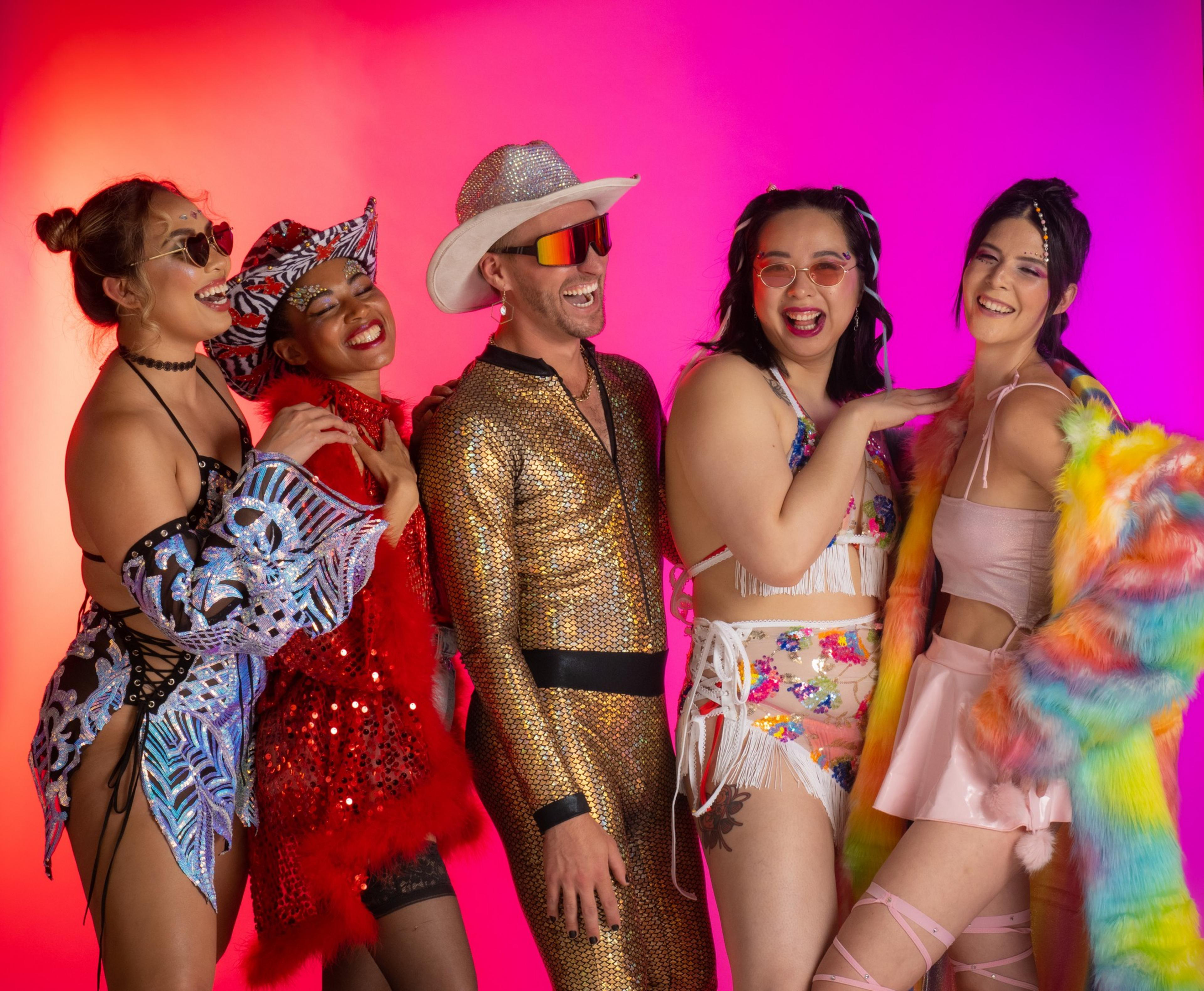Jack Miller loves to dance and loves to look fabulous while doing it. But while cavorting around the lasers and fog machines at festivals and raves, he realized an ugly truth: Single-use booty shorts, metallic tank tops, and neon hoodies abounded.
“People want to wear these fun, funky, and expressive outfits for these special events, but they also want to constantly be changing their look and wearing something different for each one,” Miller said. “I saw people turning toward fast fashion, because they wanted something affordable.”
But the calculus for dressing up could be changing, as the Trump administration has announced a 145% tariff (opens in new tab) on Chinese goods amid a widening trade war. Additionally, the U.S. has eliminated the de minimis exemption for China, which spared packages under $800 from additional duties. This specifically hits Chinese fast fashion companies like Temu and Shein, which provide a range of cheap apparel.
One survey estimated that 27 million outfits (opens in new tab) are purchased for a single festival season, and one-third of shoppers wouldn’t rewear the purchases. To Miller, those stats served as a rallying cry that inspired him to launch his resale site, Raveival (opens in new tab). He expects that the tariffs will have “an immediate effect” on people’s desire to buy things used instead of new.
Miller joins a cohort of other young San Francisco founders focused on selling second-hand goods. These so-called circular economy startups try to address one problem: the trillions of dollars of usable stuff either withering in storage or getting thrown out.

Gen Zers and millennials are increasingly embracing second-hand shopping (opens in new tab) for both environmental and financial reasons. Startups focused on making that easier are particularly well-timed as tariffs make new products more expensive.
Take Racct (opens in new tab), launched by Jon Merril and Jack Ogle to simplify buying and selling stuff with neighbors. Users snap a picture of their items, and the platform uses AI to suggest listing details. It’s like Facebook Marketplace or Craigslist, but with delivery built in: The duo has orchestrated a local network of delivery drivers (including, sometimes, themselves) so users don’t have to worry about pickups.
One user ordered 221 free items from the site and had to pay only for delivery. Behind the scenes, Racct deployed an algorithm to determine the optimal route for all those pickups.
“The dream is that you can tap a button and get something in a way that’s actually more convenient, cheaper, and good for the environment,” Ogle said.
Then there’s Disco (opens in new tab), which likens itself to the Kayak of secondhand shopping. And for Hero Stuff (opens in new tab), founders Joshua Voydik, Jeremy Herrman, and Kai Gradert raised $1.5 million for their platform that uses AI to describe each item and suggest a sale price, so the user can quickly post it on Facebook or eBay. Eventually, they plan to launch their own marketplace.
“The whole tariff thing is terrible, but it’s interesting for secondhand markets and goods,” Voydik said. “It puts us in an interesting position to help people make extra money and move their stuff.”
While Hero Stuff, Racct, and Disco tout custom platforms that use AI to make it easier to list or find goods, Raveival outsources its tech and puts all its focus on a fashion niche.
Miller knew the struggle of finding second-hand rave gems: how long it took to sift through “the generic, pedestrian clothing” in thrift stores and on online marketplaces like ThredUp and Poshmark. In contrast, Raveival is all partywear, all the time: strappy bodysuits, holographic crop tops, sexy leg wraps, platform boots, and a lot of mesh. It’s a mix of clothing Raveival sells itself (from Miller’s own stash and donations) and third-party sellers hawking their own used wares.
Miller boils his mission down to helping ravers “buy, sell, and slay — sustainably.”
Raveival is gaining traction right as the summer festival season kicks off. (Coachella just wrapped weekend one (opens in new tab), followed in May by Electric Daisy Carnival and Lightning in a Bottle.) To amp up brand recognition, Miller recently hosted a festival clothing swap in Dolores Park (opens in new tab), which he hopes to make a monthly meetup including flow dancers with light whips and poi balls.
“People loved it,” he said. “It was a whole spectacle right at the bottom of the Fruit Shelf.” (For the uninitiated, that’s the part of the park where “the gays hang out in their bikinis.”) The swap saved pounds of clothes from the landfill, Miller said.
“The five core values in the rave space are peace, love, unity, respect, and responsibility,” he said. “I’m trying to capture people’s attention that we need to be responsible toward both each other and toward the environment.”
